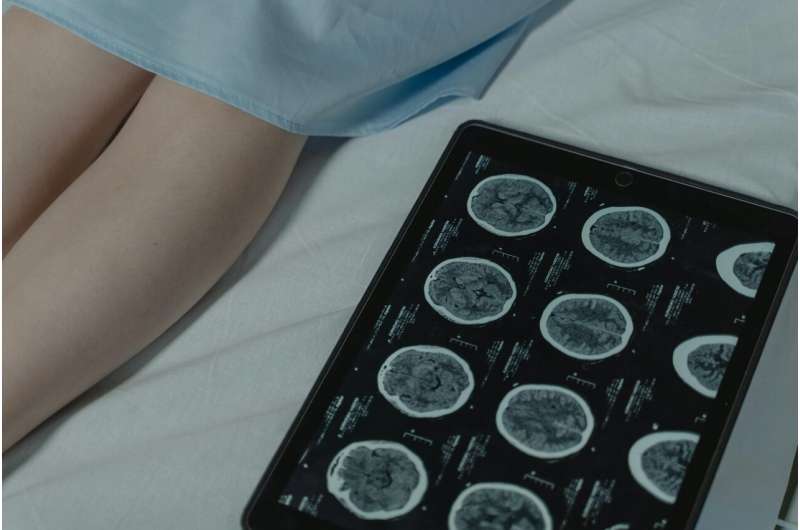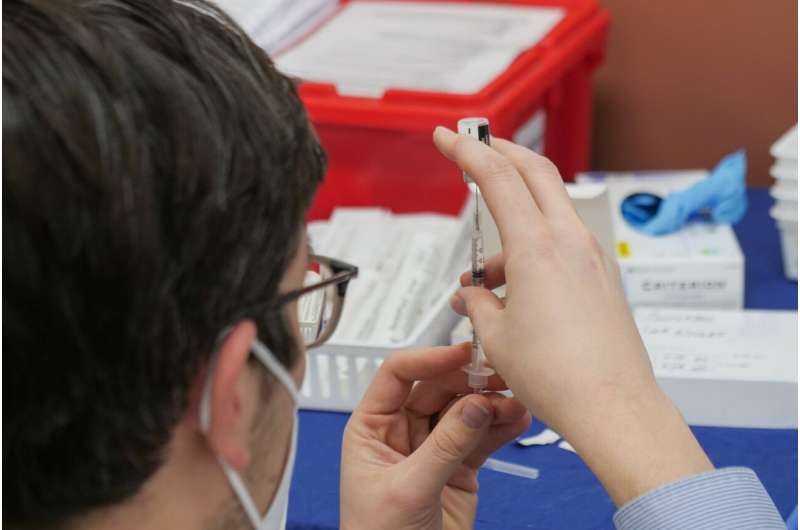Innovative Brain Imaging Study Promises New Directions in Psychosis Treatment

New brain imaging research reveals dopamine's role in psychosis across various mood disorders, promising more targeted treatments beyond traditional diagnostic categories.
A groundbreaking brain imaging study has revealed insights that could significantly alter the approach to treating psychosis-related mood disorders. Researchers discovered that alterations in brain dopamine levels are closely connected to psychotic symptoms across various mental health diagnoses, including schizophrenia, bipolar disorder, and major depression. This discovery suggests that the biological roots of psychosis are not confined to traditional diagnostic categories.
Published in JAMA Psychiatry, the study was conducted by teams from Imperial College London, the University of Oxford, and King's College London. It used PET scans to analyze the brains of 76 participants—38 experiencing their first episode of psychosis with accompanying mood symptoms (depression or mania/mixed states) and 38 control subjects without mental health issues. The key finding was that increased dopamine synthesis was linked to positive psychotic symptoms such as hallucinations and delusions, regardless of the specific diagnosis.
Lead researcher Dr. Sameer Jauhar emphasized that the current psychiatric diagnoses do not always accurately reflect how psychosis functions in the brain. "Nature doesn't follow our diagnostic boundaries, and treatment planning should consider this biological complexity," he stated. The research indicates that antipsychotic medications, which primarily target dopamine pathways, could be effective across different psychosis presentations, not just schizophrenia.
The study also found that in people experiencing manic psychosis, dopamine production was particularly heightened in the limbic region of the brain, whereas those with non-affective psychosis showed more prominent changes in the associative regions. This points toward nuanced differences in dopamine dysfunction among various types of psychosis, underscoring the need for personalized treatment approaches.
Dr. Rob McCutcheon from the University of Oxford highlighted the implications: "Most current treatments modulate dopamine signaling in a one-size-fits-all way. Our results call for more targeted therapies aligned with specific biological profiles." This research paves the way for future advances in precision psychiatry, aiming to improve outcomes by tailoring treatments based on individual brain chemistry.
In essence, this study underscores the importance of understanding the biological foundations of psychosis, which could lead to more effective and precise interventions for mood disorders involving psychotic features. Moving beyond traditional diagnostic labels, clinicians might soon use brain imaging biomarkers to guide treatment decisions and predict therapeutic responses.
For further details, see the full study in JAMA Psychiatry: Dopamine and Mood in Psychotic Disorders. This research was supported by Imperial College London and complements ongoing efforts to enhance mental health treatment through neuroscience innovations.
Stay Updated with Mia's Feed
Get the latest health & wellness insights delivered straight to your inbox.
Related Articles
Federal Court Blocks Effort to Cut Medicaid Funding for Planned Parenthood
A federal court has temporarily blocked the federal government from cutting Medicaid funding to Planned Parenthood clinics nationwide, ensuring continued access to essential reproductive health services amidst ongoing legal challenges.
Communication Key to Women's Experiences with Fundal Pressure During Childbirth
A groundbreaking study shows that effective communication significantly influences women's experiences of fundal pressure during childbirth, emphasizing the importance of informed consent and respectful care in obstetrics.
Innovative Approach Estimates Measles Vaccination Coverage Without Recent Survey Data
A new modeling technique utilizes routine clinic data to estimate regional measles vaccination rates without relying on recent surveys, enhancing outbreak prevention efforts globally.
Early Detection of Aging Signals in Liver Tissue Offers Potential for Disease Prediction
Innovative single-cell analysis technology enables early detection of tissue aging signals in the liver, improving disease prediction and personalized treatment strategies.



